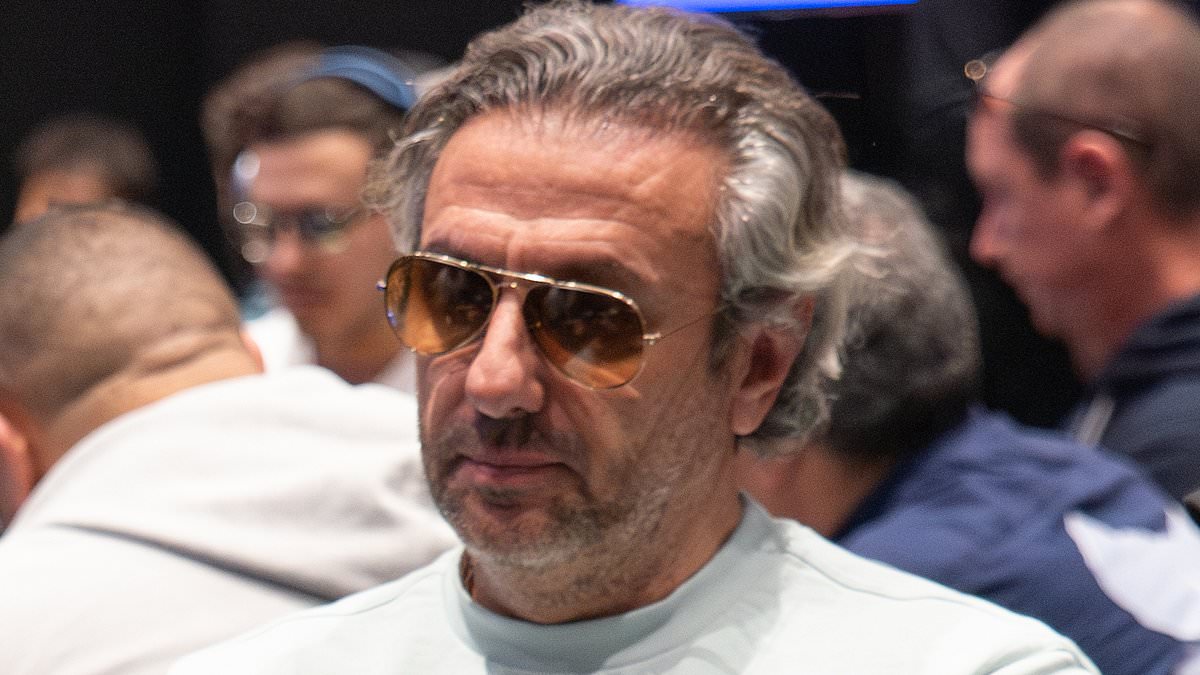UK Supreme Court judges have blocked the extradition of a British-Lebanese securities trader to the US to face trial for alleged insider trading in a rare act of defiance against American prosecutors.
Joseph El-Khouri was charged in New York in 2019 alongside five others, accused of being part of an insider trading ring. He faced 17 charges, including securities and wire fraud.
US prosecutors allege El-Khouri made substantial payments to a middleman – including chartering a yacht in Greece and renting a ski chalet in France – for confidential inside information, making profits of around £2million.
El-Khouri challenged his proposed extradition to America and the Supreme Court upheld his appeal yesterday, ruling that almost all the alleged criminality took place in Britain.
A leading extradition lawyer said the ruling would send ‘shockwaves’ through the US Department of Justice, which has historically relied on the ‘unequal’ extradition treaty between the UK and America to force the extradition of British suspects.
Under the rules, it is far easier for the US to extradite British citizens than it is for Britain to extradite Americans.
One prominent critic of the rules was Dr Mike Lynch, known as ‘Britain’s Bill Gates’, who was taken in chains to America over fraud charges relating to the 2011 sale of his software firm, Autonomy, to US computing giant Hewlett-Packard.
He was facing up to 25 years in prison before a jury in San Francisco acquitted him on all 15 charges – one count of conspiracy, and 14 counts of wire fraud, each connected to specific transactions or communications.
Dr Lynch tragically died when his yacht, the Bayesian, sank off the coast of Sicily last year. Six other people also lost their lives, including his 18-year-old daughter, Hannah.
The tech mogul’s extradition stood in stark contrast to the case of US diplomat Anne Sacoolas, who killed teenager Harry Dunn in a road accident in 2019.
US authorities refused a British request to extradite her and she was handed a suspended sentence by a judge at the Old Bailey while staying in her own country.
Ruling on El-Khouri’s case, the Supreme Court said: ‘No part of the conduct alleged to constitute insider dealing can sensibly be considered to have occurred in the United States.’
The only alleged act that happened in America was payment for a middleman’s hotel room in New York, but this was ‘purely incidental’ to the case, the judges ruled.
El-Khouri’s lawyer Richard Cannon said the ruling’s focus on where the alleged criminal conduct took place ‘represents an important check on overreach by the U.S. authorities in the way the US/UK extradition treaty operates’.
The Supreme Court said in its ruling that El-Khouri had been investigated by Britain’s Financial Conduct Authority between November 2016 and January 2018, but that the FCA concluded there was insufficient evidence to prosecute him.
Edward Grange, partner at Corker Binning and a leading extradition lawyer, told the FT that the decision would send ‘shockwaves through the [US] Department of Justice’.
WikiLeaks founder Julian Assange spent years fighting extradition to the US before being freed from HMP Belmarsh and allowed to return to in return for pleading guilty to one count of conspiracy to violate the Espionage Act.
And in an earlier case, hacker Gary McKinnon, who has Asperger’s Syndrome, faced extradition to the US and up to 60 years behind bars for hacking into Pentagon and Nasa computers.
His extradition was blocked by then Home Secretary Theresa May in 2012 on medical grounds.
